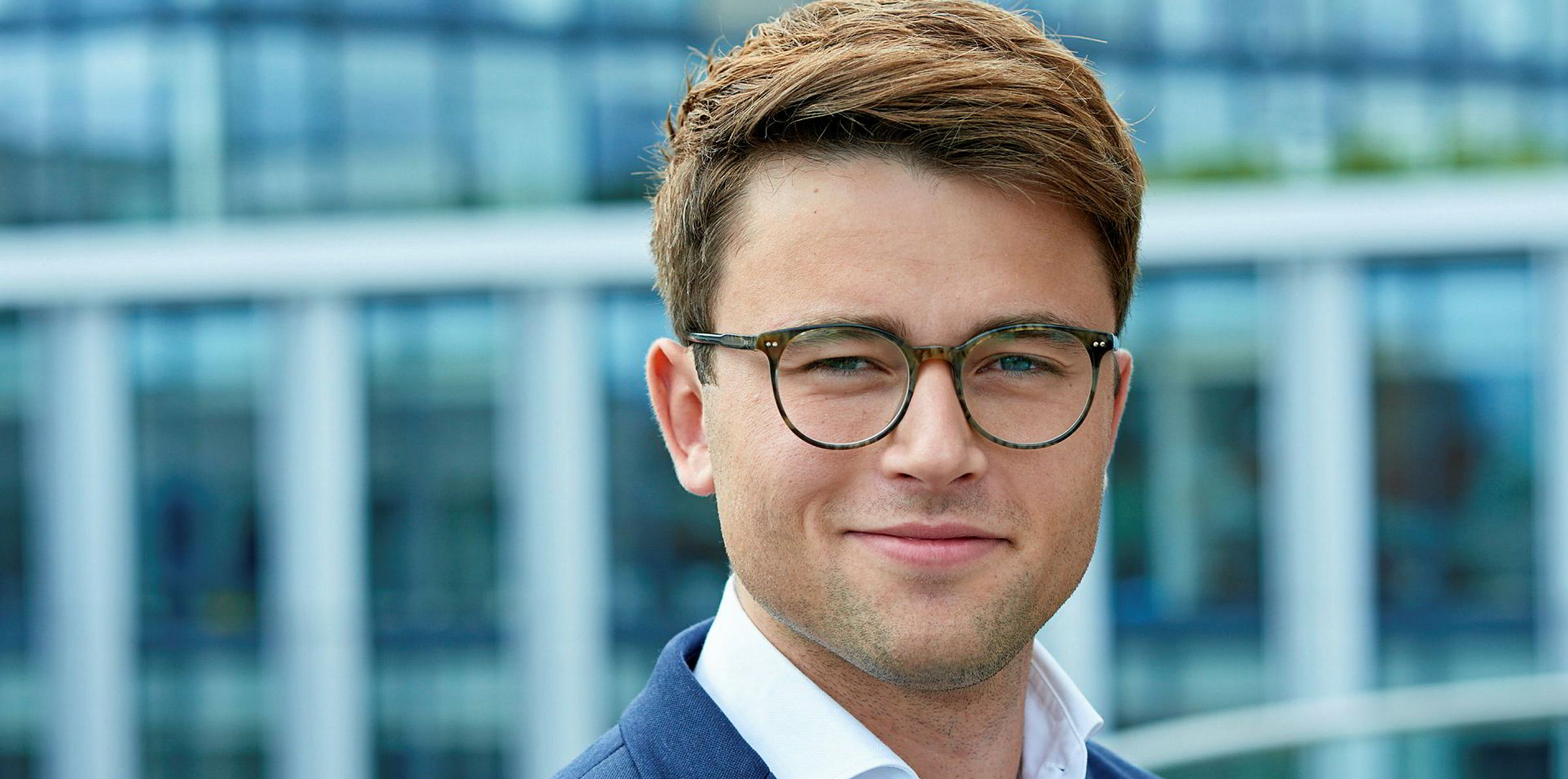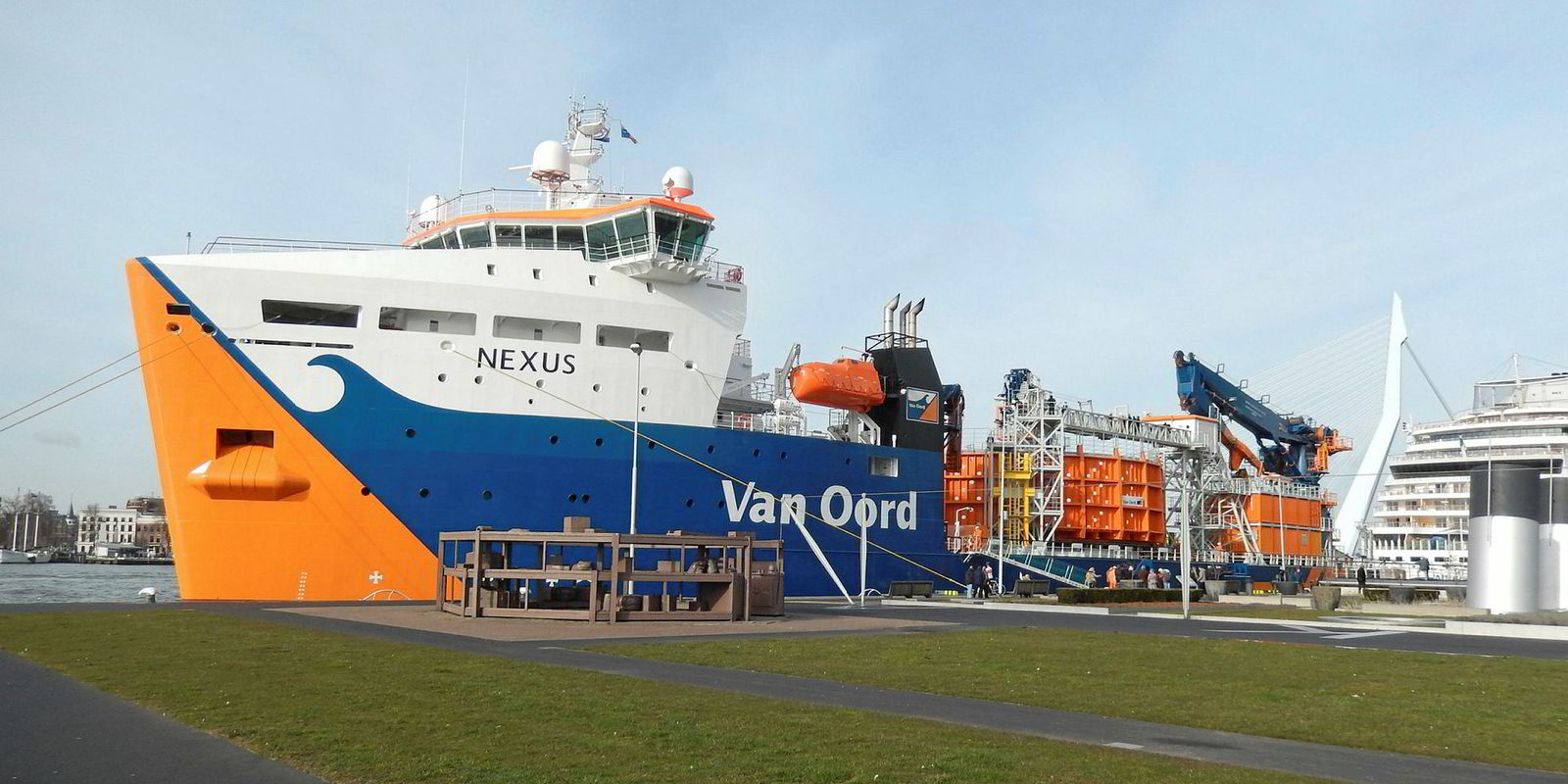Clarksons Platou Offshore has expanded its desk in the heart of Germany’s renewables sector by poaching broker Rouven Willner from competitor F3 Offshore Services.
With about 12 dedcicated brokers in its fold, the recruitment of Willner by the unit of broking giant Clarksons represents a further expansion into the offshore wind business, where it has been directly involved for at least a decade.
Having been on gardening leave since March, Willner will settle into Clarksons Platou by working from the Oslo office for the next two weeks before returning to the German wind hub of Hamburg, where he has worked with F3 Offshore since 2013.
Willner, who comes from nearby Kiel in northern Germany, will be responsible for expanding Clarksons Platou’s offshore renewables business in Germany and the rest of mainland Europe, while helping to develop new vessel concepts globally.
He has been targeting chartering and projects for service operations vessels and the walk-to-work segment.

Frederik Colban-Andersen, divisional director for offshore renewables, told TradeWinds that Willner's move is more proof of Clarksons Platou’s strong belief in offshore wind and how the sector will continue to grow as an ever-larger part of the global energy mix.
“With Rouven, it means we now have a fully functional offshore desk in Hamburg and that creates the 11th offshore office in the Clarksons group,” Colban-Andersen said. “This is the 11th dot on the map for us but it also brings our services to mainland Europe and gives us a presence in another centre of offshore expertise, which is in Hamburg.”
Apart from Oslo, the house’s other offshore desks are in Aberdeen, London, Houston, Singapore and Shanghai.
Clarksons already had a Hamburg office led by Jan Aldag, although the main focus was on specialised products and containerships.
Seeing the world’s largest shipbroker come in to cherry-pick staff from competitors appears to be viewed as something of a threat in German circles, Colban-Andersen indicated.
“Yes, it has been interesting to follow how the broking community down in Hamburg has received this move,” he said.
Colban-Andersen maintains that offshore renewables has come of age and is no longer just the "little brother” of the oil-and-gas industry. The broking house expects about 20 different vessel types to be serving around 4,200 European offshore wind turbines by 2020.

As offshore wind continues to go from strength to strength, with more investments, developments and plans globally, it has provided much-needed work for a rising number of shipowners, after nearly four years of the severe oil-and-gas downturn.
However, shipbrokers on the oil-and-gas side may not necessarily be looking as hard as they had been to cross over into windfarms, Colban-Andersen said.
“Right now, we may see a potential shift back to more of an oil-and-gas focus because the oil price seems to have stabilised and the price level seems to be much closer to being sustainable for the industry,” he said.
“Yes, there have been a lot of brokers looking at or jumping into offshore wind, and almost all the broking houses want or have wanted their own teams doing it.”
But he said people who have not yet changed from oil and gas to renewables are not likely to change for now.
“That's because they stuck to it for years of the downturn, so why not try to catch some of the upside if you made it this far,” he reasoned.
“If that does happen, then it is just great for us because we can just continue building on what we believe is a geo-energy market of both oil-and-gas and renewables, not just one or other.”






